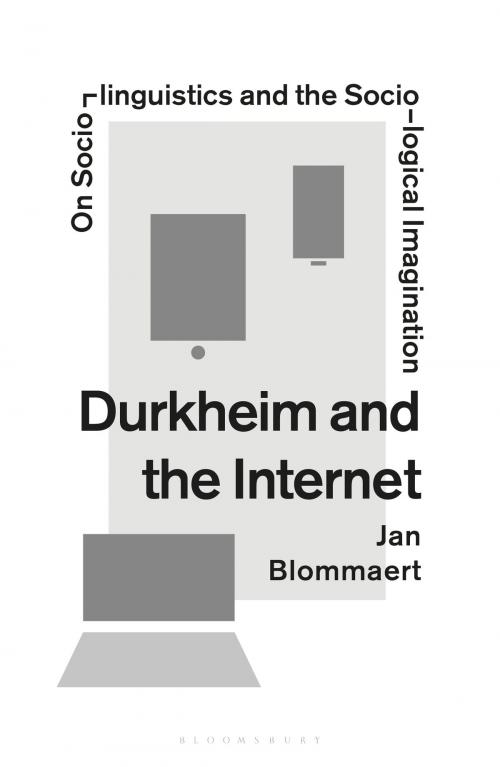Durkheim and the Internet
On Sociolinguistics and the Sociological Imagination
Nonfiction, Reference & Language, Language Arts, Linguistics, Social & Cultural Studies, Social Science, Sociology| Author: | Professor Jan Blommaert | ISBN: | 9781350055209 |
| Publisher: | Bloomsbury Publishing | Publication: | July 12, 2018 |
| Imprint: | Bloomsbury Academic | Language: | English |
| Author: | Professor Jan Blommaert |
| ISBN: | 9781350055209 |
| Publisher: | Bloomsbury Publishing |
| Publication: | July 12, 2018 |
| Imprint: | Bloomsbury Academic |
| Language: | English |
This book is available as open access through the Bloomsbury Open programme and is available on www.bloomsburycollections.com.
Sociolinguistic evidence is an undervalued resource for social theory. In this book, Jan Blommaert uses contemporary sociolinguistic insights to develop a new sociological imagination, exploring how we construct and operate in online spaces, and what the implications of this are for offline social practice.
Taking Émile Durkheim's concept of the 'social fact' (social behaviours that we all undertake under the influence of the society we live in) as the point of departure, he first demonstrates how the facts of language and social interaction can be used as conclusive refutations of individualistic theories of society such as 'Rational Choice'. Next, he engages with theorizing the post-Durkheimian social world in which we currently live. This new social world operates 'offline' as well as 'online' and is characterized by 'vernacular globalization', Arjun Appadurai's term to summarise the ways that larger processes of modernity are locally performed through new electronic media. Blommaert extrapolates from this rich concept to consider how our communication practices might offer a template for thinking about how we operate socially. Above all, he explores the relationship between sociolinguistics and social practice
In Durkheim and the Internet, Blommaert proposes new theories of social norms, social action, identity, social groups, integration, social structure and power, all of them animated by a deep understanding of language and social interaction. In drawing on Durkheim and other classical sociologists including Simmel and Goffman, this book is relevant to students and researchers working in sociolinguistics as well as offering a wealth of new insights to scholars in the fields of digital and online communications, social media, sociology, and digital anthropology.
This book is available as open access through the Bloomsbury Open programme and is available on www.bloomsburycollections.com.
Sociolinguistic evidence is an undervalued resource for social theory. In this book, Jan Blommaert uses contemporary sociolinguistic insights to develop a new sociological imagination, exploring how we construct and operate in online spaces, and what the implications of this are for offline social practice.
Taking Émile Durkheim's concept of the 'social fact' (social behaviours that we all undertake under the influence of the society we live in) as the point of departure, he first demonstrates how the facts of language and social interaction can be used as conclusive refutations of individualistic theories of society such as 'Rational Choice'. Next, he engages with theorizing the post-Durkheimian social world in which we currently live. This new social world operates 'offline' as well as 'online' and is characterized by 'vernacular globalization', Arjun Appadurai's term to summarise the ways that larger processes of modernity are locally performed through new electronic media. Blommaert extrapolates from this rich concept to consider how our communication practices might offer a template for thinking about how we operate socially. Above all, he explores the relationship between sociolinguistics and social practice
In Durkheim and the Internet, Blommaert proposes new theories of social norms, social action, identity, social groups, integration, social structure and power, all of them animated by a deep understanding of language and social interaction. In drawing on Durkheim and other classical sociologists including Simmel and Goffman, this book is relevant to students and researchers working in sociolinguistics as well as offering a wealth of new insights to scholars in the fields of digital and online communications, social media, sociology, and digital anthropology.















